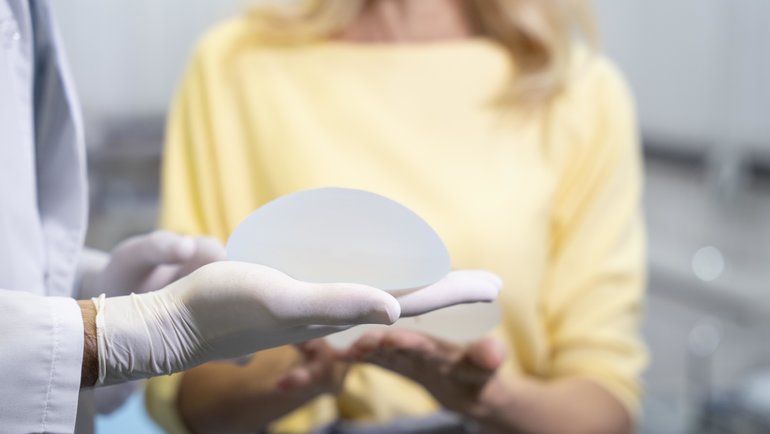Breast augmentation is one of the most popular cosmetic procedures worldwide, helping women achieve fuller, shapelier, and more balanced breasts. However, for women who plan to become mothers or are already raising families, one of the most common concerns is whether they will be able to breastfeed after surgery. If you are considering Breast Augmentation in Islamabad, it is natural to wonder about the effects on future breastfeeding. In this guide, we’ll answer the most important questions and clear up misconceptions.
Understanding Breast Augmentation
Breast augmentation, or augmentation mammoplasty, involves enhancing the size and shape of breasts using implants or fat transfer. Women choose the surgery for different reasons:
- To increase breast size for a more balanced figure
- To restore volume lost due to pregnancy or weight changes
- To correct asymmetry between breasts
- To improve overall body confidence
While the primary purpose of the procedure is cosmetic, it’s important to evaluate how it may affect the functional aspects of the breasts—such as breastfeeding.
Does Breast Augmentation Affect Breastfeeding?
The simple answer is yes, many women can breastfeed successfully after breast augmentation. However, the ability to breastfeed depends on several factors:
- Surgical Technique Used
- The placement of incisions (around the areola vs. under the breast fold) can influence milk ducts and nerves.
- Type of Implant Placement
- Implants placed under the chest muscle (submuscular) generally have less impact on breastfeeding compared to implants placed directly behind breast tissue (subglandular).
- Individual Breast Anatomy
- Some women naturally have underdeveloped breast tissue, which can affect milk production regardless of surgery.
Incision Types and Their Impact
- Inframammary Incision (under the breast fold): Least likely to interfere with breastfeeding as it avoids milk ducts and nerves.
- Periareolar Incision (around the areola): May increase the risk of affecting nerves or milk ducts, which can sometimes reduce milk supply.
- Transaxillary Incision (through the armpit): Does not involve the breast tissue directly and has minimal effect on breastfeeding ability.
Most experienced surgeons in Islamabad recommend incisions that minimize interference with breastfeeding for younger women planning future pregnancies.
Will Breast Implants Contaminate Breast Milk?
A common misconception is that implants—whether silicone or saline—can leak harmful substances into breast milk. Research shows no evidence that breast implants contaminate milk or pose risks to infants.
Both saline and silicone implants are considered safe, and numerous studies have found no harmful effects on babies who were breastfed by mothers with implants.
Challenges Some Women May Face
While breastfeeding after breast augmentation is usually possible, some women may face challenges:
- Reduced Milk Supply: If nerves or ducts were affected during surgery, milk production may be limited.
- Nipple Sensitivity Changes: Temporary changes in nipple sensation can affect the let-down reflex, though sensation often improves over time.
- Engorgement or Mastitis: Like any new mother, women with implants may experience these common breastfeeding issues, but they are not caused by implants themselves.
Tips for Successful Breastfeeding After Augmentation
- Discuss with Your Surgeon: If you’re planning children, mention this before surgery so incision techniques can be chosen accordingly.
- Opt for Submuscular Placement: Implants under the muscle reduce pressure on milk glands.
- Choose Inframammary Incisions: These minimize risks to ducts and nerves.
- Work with a Lactation Consultant: After childbirth, professional guidance can help maximize milk supply.
- Monitor Baby’s Growth: Ensure your child is gaining healthy weight to confirm adequate milk production.
Psychological Concerns for Mothers
Beyond physical ability, some women worry about how breast augmentation may affect the bonding experience of breastfeeding. It’s reassuring to know that the emotional connection between mother and child is not dependent on surgery. Even in cases of reduced milk production, partial breastfeeding combined with formula can still provide bonding and nutrition.
The Role of Surgeon Expertise
One of the most critical factors in determining breastfeeding success after augmentation is the skill and technique of the surgeon. In Islamabad, top clinics ensure that surgical planning takes future motherhood into account. By carefully selecting implant type, size, and incision location, an experienced surgeon can minimize risks while still achieving beautiful results.
Breastfeeding After Fat Transfer Augmentation
For women who want a more natural option, fat transfer augmentation uses fat from other parts of the body rather than implants. This method typically has minimal impact on breastfeeding since there are no foreign implants involved. However, fat transfer is better for modest increases in breast size rather than dramatic enhancements.
FAQs About Breastfeeding After Breast Augmentation
1. Can all women breastfeed after augmentation?
Not all, but most women can. Success depends on incision type, implant placement, and natural breast anatomy.
2. Will my milk supply be reduced?
Some women may experience a reduction, but many produce enough milk to feed their baby successfully.
3. Are silicone implants safe for breastfeeding?
Yes. Studies show no increased risk to infants from silicone implants.
4. Should I delay augmentation until after having children?
This depends on your personal goals. Some women choose augmentation earlier, while others wait until after childbirth and breastfeeding.
5. Can breastfeeding affect the results of augmentation?
Yes, breastfeeding and pregnancy can change breast shape and size. Some women may consider a revision surgery afterward.
Conclusion
Breast augmentation is a safe and effective way to enhance breast size and confidence, and in most cases, it does not prevent successful breastfeeding. With the right surgical technique, implant placement, and guidance, many mothers go on to breastfeed their babies without issue.
If you’re considering Breast Augmentation in Islamabad and are concerned about future breastfeeding, the best step is to consult a qualified surgeon. At SKN Cosmetic Clinic, highly experienced professionals provide personalized treatment plans, ensuring your aesthetic goals are met while keeping future motherhood in mind. With expert care, advanced technology, and a patient-first approach, SKN stands as one of the leading cosmetic clinics in Islamabad for women who want safe, satisfying, and confidence-boosting results.





Comments